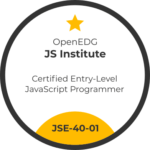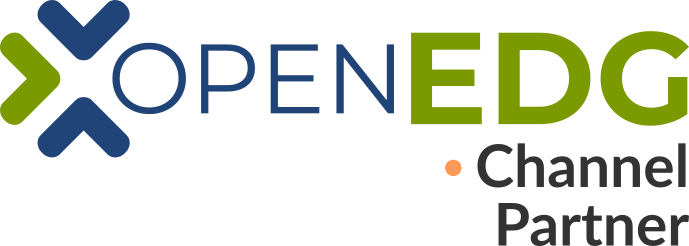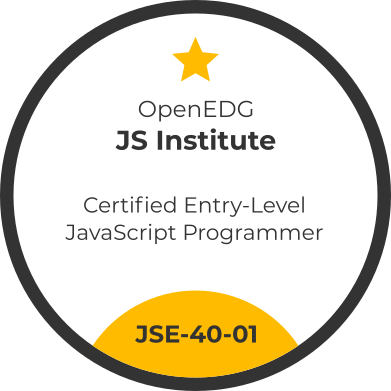
La certificación JSE – Certified Entry-Level JavaScript Programmer, de nivel básico, es una credencial profesional que demuestra la comprensión de los profesionales de la sintaxis y la semántica básicas del lenguaje JavaScript, así como su competencia en el uso de los elementos, herramientas y recursos más esenciales del lenguaje para diseñar, desarrollar y refactorizar programas JavaScript simples.
El profesional certificado conocerá la sintaxis del lenguaje JavaScript a un nivel que le permite trabajar con variables, operadores, mecanismos de flujo de control y funciones, así como comprender los fundamentos del sistema de tipo de datos de JavaScript, el manejo de excepciones, la solución de problemas, la depuración y el entorno de tiempo de ejecución. Aprenderá los conceptos universales de la programación informática, el trabajo y el rol de un programador en el desarrollo de software. Sabrá cómo aplicar las mejores prácticas y convenciones de codificación. Desarrollará un pensamiento algorítmico y será capaz de analizar un problema utilizando un aparato conceptual programático.
Obtener esta certificación garantizará que el profesional está familiarizado con los medios más esenciales proporcionados por el lenguaje de JavaScript. Le permitirá comenzar sus propios estudios en un nivel intermedio y continuar su desarrollo profesional.

